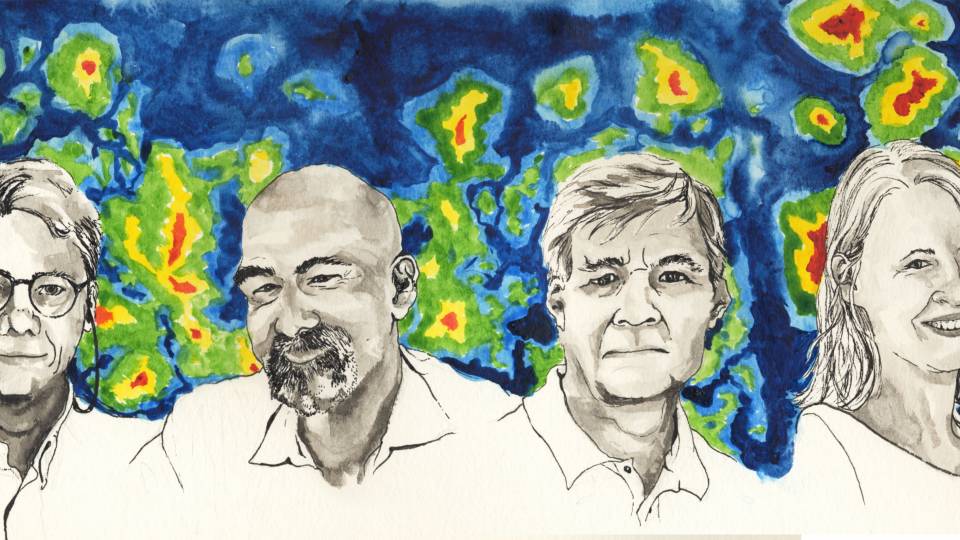Several Princeton University researchers are among those honored with the 2012 Gruber Cosmology Prize for the Wilkinson Microwave Anisotropy Probe (WMAP) satellite project, which has become the basis for understanding the origin, age and content of the universe. Four of the 26 team members sharing the Gruber prize are currently at Princeton: David Spergel, chair of astrophysical sciences and the Charles A. Young Professor of Astronomy on the Class of 1897 Foundation; Lyman Page Jr., chair of physics and the Henry De Wolf Smyth Professor of Physics; Norman Jarosik, senior research physicist; and Kendrick Smith, a postdoctoral research associate in astrophysical sciences. In addition, 14 WMAP researchers conducted work on the project as graduate or postdoctoral students at the University.
Since its launch in 2001, WMAP — a joint spacecraft project between Princeton and NASA — has regularly provided new and precise data regarding the makeup of the universe by measuring temperature changes in the Cosmic Microwave Background, which is the remnant heat from the Big Bang. Information provided by WMAP includes the proportion of the universe composed of dark matter and dark energy. The satellite project was named in honor of late team member and Princeton physics professor David Wilkinson, and was led by Johns Hopkins University astronomy and physics professor Charles Bennett.
Established in 2001 by the Peter and Patricia Gruber Foundation and the International Astronomical Union, the Gruber Cosmology Prize recognizes work that shapes scientific understanding of the universe. The WMAP team will be presented with the prize at the International Astronomical Union meeting in Beijing on Aug. 21.
